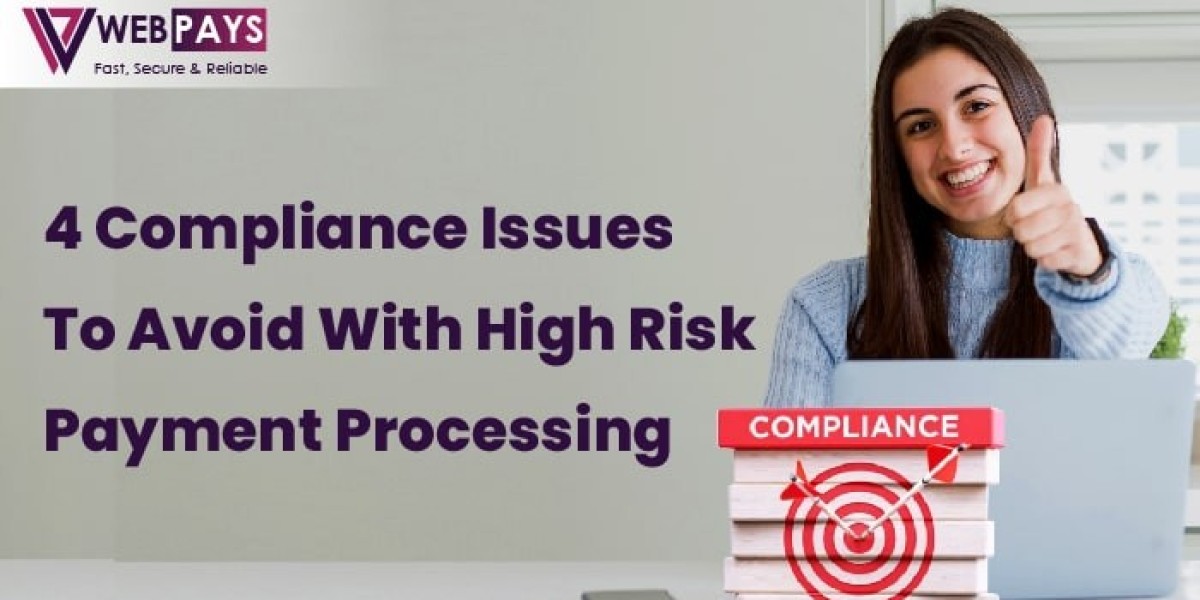If you're going into the world of high risk payment processing, youre probably already aware of the unique challenges it presents. Whether youre a seasoned business owner or new to the game, managing high risk payment transactions requires a solid understanding of compliance issues to keep everything running smoothly. In this blog, well chat about four crucial compliance issues you need to avoid to ensure your high risk payment processing remains hassle-free. Lets dive in!
1. Neglecting Know Your Customer (KYC) Requirements:
When dealing with high risk payment processors, one of the biggest compliance missteps you can make is ignoring KYC requirements. KYC (Know Your Customer) is a process used to verify the identity of your clients and assess their risk levels. This is especially crucial for high risk payment processing, where fraud and financial crime risks are higher.
Why It Matters: KYC helps in preventing money laundering and fraud. High risk payment processors are under strict regulations to ensure theyre not inadvertently facilitating illegal activities. For your business, this means you need to have a robust KYC process in place to verify the identity of your customers before processing transactions.
What to Do: Ensure that your high risk processor has a solid KYC framework in place. This often involves collecting and verifying customer identification documents, such as government-issued IDs or proof of address. Regularly update your verification processes and stay informed about changes in regulations to keep your business compliant.
2. Overlooking PCI Compliance:
If youre dealing with a high risk processing merchant account, PCI (Payment Card Industry) compliance is non-negotiable. PCI compliance involves adhering to a set of standards designed to protect cardholder data during and after a transaction. For high risk payment processing, this becomes even more crucial due to the increased likelihood of data breaches and cyber attacks.
Why It Matters: Failure to comply with PCI standards can result in hefty fines and damage to your reputation. Additionally, non-compliance can lead to increased scrutiny from card networks and processors, potentially jeopardizing your ability to process payments.
What to Do: Work closely with your high risk payment processors to ensure that your payment systems are PCI compliant. This involves implementing secure data encryption, conducting regular security assessments, and maintaining strict access controls. Make sure you understand the specific requirements of PCI DSS (Data Security Standard) and incorporate them into your payment processing practices.
3. Ignoring Chargeback Management:
Chargebacks are a common issue in high risk payment processing. They occur when a customer disputes a transaction and requests a refund through their bank. While some chargebacks are legitimate, others can be fraudulent or unwarranted. For businesses dealing with high risk payment processors, managing chargebacks effectively is crucial to avoid additional fees and potential account termination.
Why It Matters: High chargeback rates can signal potential problems to your payment processor. This could lead to increased fees or even a suspension of your high risk processing merchant account. Additionally, excessive chargebacks can impact your reputation and customer trust.
What to Do: Implement a robust chargeback management strategy. This involves tracking and analyzing chargeback reasons to identify patterns or recurring issues. Offer excellent customer service to resolve disputes before they escalate to chargebacks. Work with your high risk payment processors to understand their chargeback policies and integrate tools or services that help in managing and mitigating chargebacks effectively.
4. Failing to Comply with Regional and Industry-Specific Regulations:
High risk payment processing often involves navigating a maze of regional and industry-specific regulations. Depending on your business type and where you operate, you might face different legal requirements and restrictions. Failing to comply with these regulations can lead to severe penalties and operational disruptions.
Why It Matters: Each region or industry might have specific rules regarding payment processing, data protection, and consumer rights. Non-compliance can result in legal consequences and affect your ability to continue processing payments.
What to Do: Stay informed about the regulatory environment in the regions where you do business. This could involve consulting with legal experts who specialize in payment processing regulations. Ensure that your high risk payment processors are well-versed in the relevant regulations and are capable of supporting your compliance efforts. Regularly review and update your practices to align with any changes in laws or regulations.
Conclusion
In a gist, It can be difficult to deal with high risk payment processing, but staying clear of five important compliance pitfalls is crucial. Stay on top of KYC, ensure PCI compliance, manage chargebacks well, and follow all relevant regulations for smoother, safer transactions. Ready to simplify your payment processing? Contact WebPays today for tailored, and secure solution that will proper your your business towards success.








